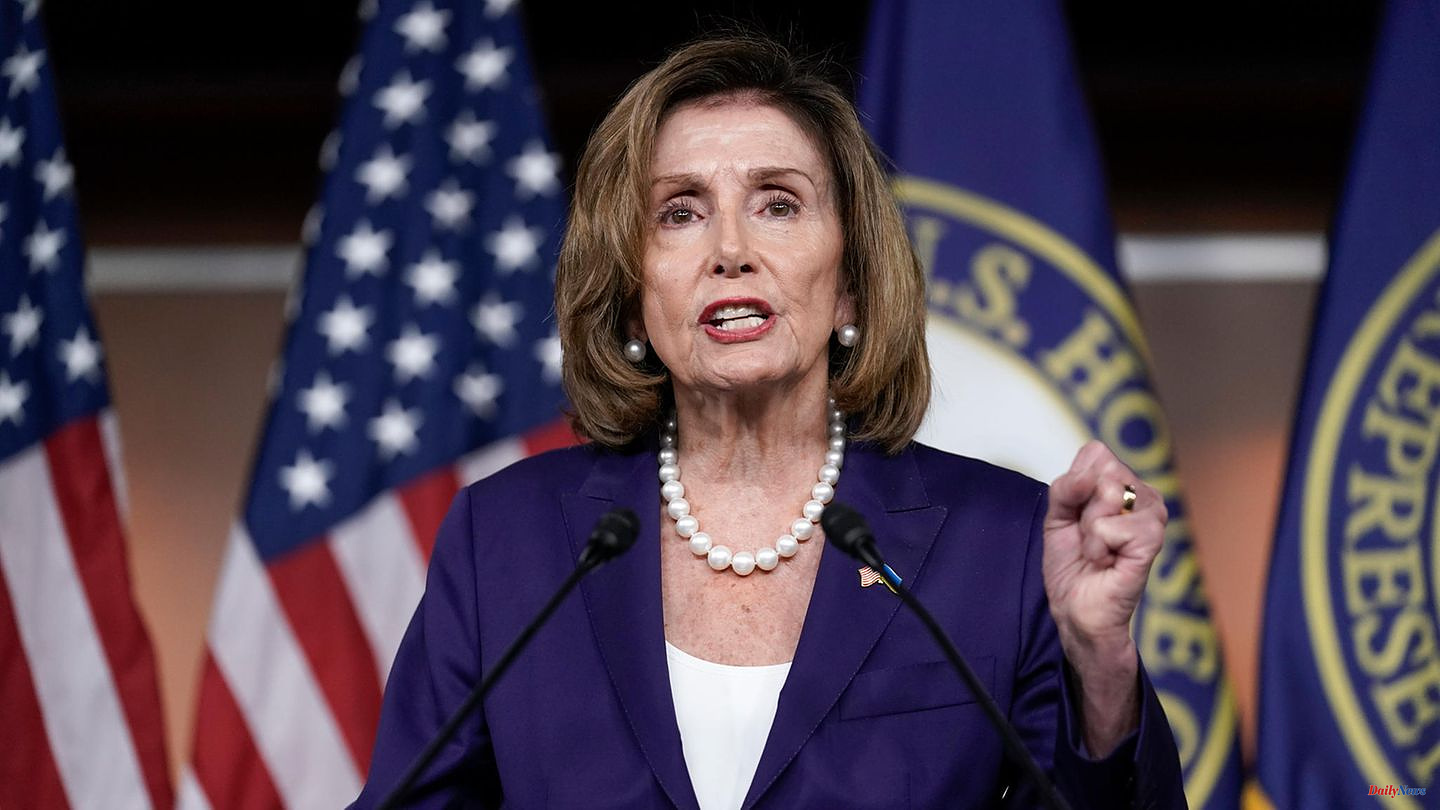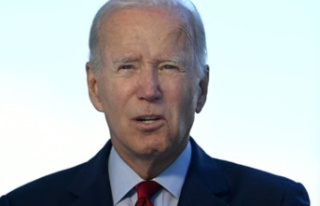US House Speaker Nancy Pelosi has arrived in Taiwan for a visit. Your plane landed in the capital Taipei on Tuesday evening (local time). The top politician ignored warnings from China, which sees the democratic island as part of the People's Republic. In response, Beijing has threatened "targeted military action". "The Chinese People's Liberation Army is on high alert and will respond with a series of targeted military actions," a Defense Ministry spokesman in Beijing said shortly after Pelosi's arrival.
Tensions with China notwithstanding, the visit to Taiwan itself is largely welcomed. The stay of the Speaker of the US House of Representatives is the highest-ranking visit from the United States to the island's democratic republic in a quarter of a century. Tensions with China had already intensified in the run-up to the event. Beijing sees Taiwan as part of the People's Republic. It firmly rejects official contacts from other countries to Taipei.
After landing, Pelosi Taiwan pledged continued US support. Her visit underscores America's "unwavering commitment to supporting a vibrant democracy in Taiwan," Pelosi said Tuesday night. "America's solidarity with the 23 million people of Taiwan is more important now than ever as the world faces a choice between autocracy and democracy."
Cross-party Taiwanese parliamentarians welcomed the 82-year-old. Kuomintang MP Chen Yi-hsin said he hoped Beijing would not "overreact". Pelosi represents Congress and the people of the United States, but not US President Joe Biden, he told the CNA news agency. Her visit does not represent a change in the US's "one China policy," which recognizes Beijing as China's only legitimate government.
Ruling Progressive Party (DPP) MP Wang Tingyu expects Beijing to take some "disruptive actions". However, he does not expect a reaction that could trigger a conflict with the USA. The Secretary-General of the Taiwan Human Rights Association, Shih Yi-hsiang, sees the visit as a "signal that we should deepen democracy and human rights and oppose the authoritarianism of the Chinese Communist Party".
Pelosi's visit as part of a trip to Asia had not been officially confirmed until recently. The 82-year-old wants to meet President Tsai Ing-wen on Wednesday. Talks in parliament were also planned, as a member of the German Press Agency reported. The visit of America's number three - after the President and Vice President - is seen as a welcome upgrade in Taiwan. It is also seen as a setback for Beijing, which is trying to isolate Taiwan internationally.
In response to Peloci's visit, China has announced target practice maneuvers in six sea areas around the democratic island republic. According to state television, the Ministry of Defense in Beijing announced that the maneuvers will begin this Tuesday and should last until Sunday.
The maneuvers served as "a serious deterrent to the recent escalation of negative US moves on the Taiwan issue and a stern warning to pro-independence forces that want secession," the spokesman said. It is about repelling "the interference of foreign forces and separatist attempts by independence forces in Taiwan".
Shortly after Pelosi's landing, the Foreign Ministry in Beijing spoke of a "very dangerous game with fire". China will "take all necessary measures to defend national sovereignty and territorial integrity". It also said: "Whoever plays with fire will burn himself."
The visit was a "major political provocation," the Foreign Ministry said on Tuesday. "The US side is trying to control China via Taiwan and undermine the one China principle." The Taiwan question is a purely internal matter of China, in which the US should not interfere. China regards Taiwan as part of the People's Republic and rejects official contacts from other countries to Taipei. Pelosi's visit is the highest-ranking from the United States in a quarter-century.
Even before landing, China's People's Liberation Army increased the threat with maneuvers, target practice, the use of military aircraft and warships near Taiwan and closed off sea areas. Immediately beforehand, Chinese state television reported that Su-35 fighter jets flew over the Taiwan Strait sea lane. How many there were and what their destination was not disclosed.
In response to the military muscle flexing, Taiwan's military had previously increased its combat readiness, the CNA news agency reported. However, the two-stage alarm system is not yet a classification for the "emergency", but continues to be a "normal operational readiness".
China's head of state and party leader Xi Jinping warned US President Joe Biden in a telephone call on Thursday before the visit: "Those who play with fire will perish." From the point of view of the Chinese leadership, Taiwan is part of the People's Republic, although it was already governed independently before it was founded in 1949. The island, which has a population of 23 million, has long considered itself independent. China's president sees achieving "unification" as his "historic" mission and threatens conquest.
China's foreign ministry spokeswoman Hua Chunying accused the US of "provocations" and threatened "strong and resolute measures". The US would "pay a price". Relations between China and the United States "are almost on the razor's edge," wrote the party-affiliated newspaper Global Times. "The countermeasures that the high command envisages against Pelosi's possible visit to Taiwan must be far more rigorous and extensive than can be imagined. China's warning to the US is not idle talk."
The White House warned Beijing of an escalation. "There is no reason for Beijing to turn a possible visit, consistent with longstanding US policy, into a crisis or conflict," said Security Council communications director John Kirby. The US would not engage in "saber rattling." "At the same time, we don't let ourselves be intimidated."
According to him, the visit does not change "anything" about the USA's China policy. The US does not maintain official diplomatic relations with Taiwan, but regards Beijing as China's legitimate representative.












